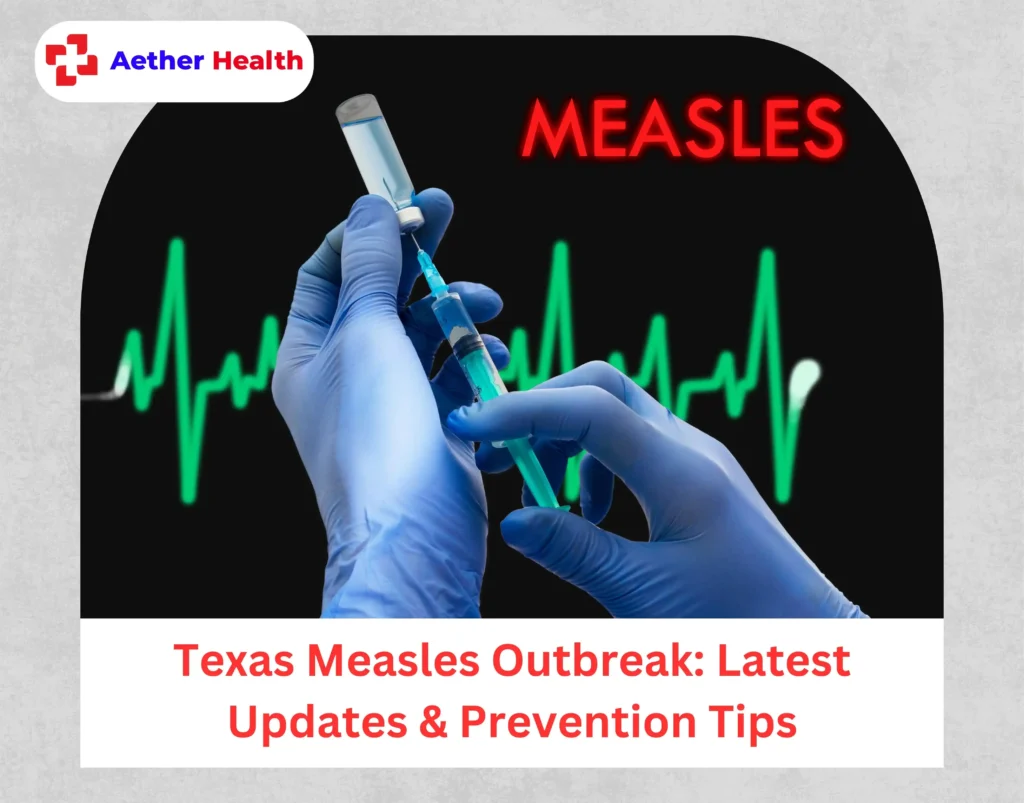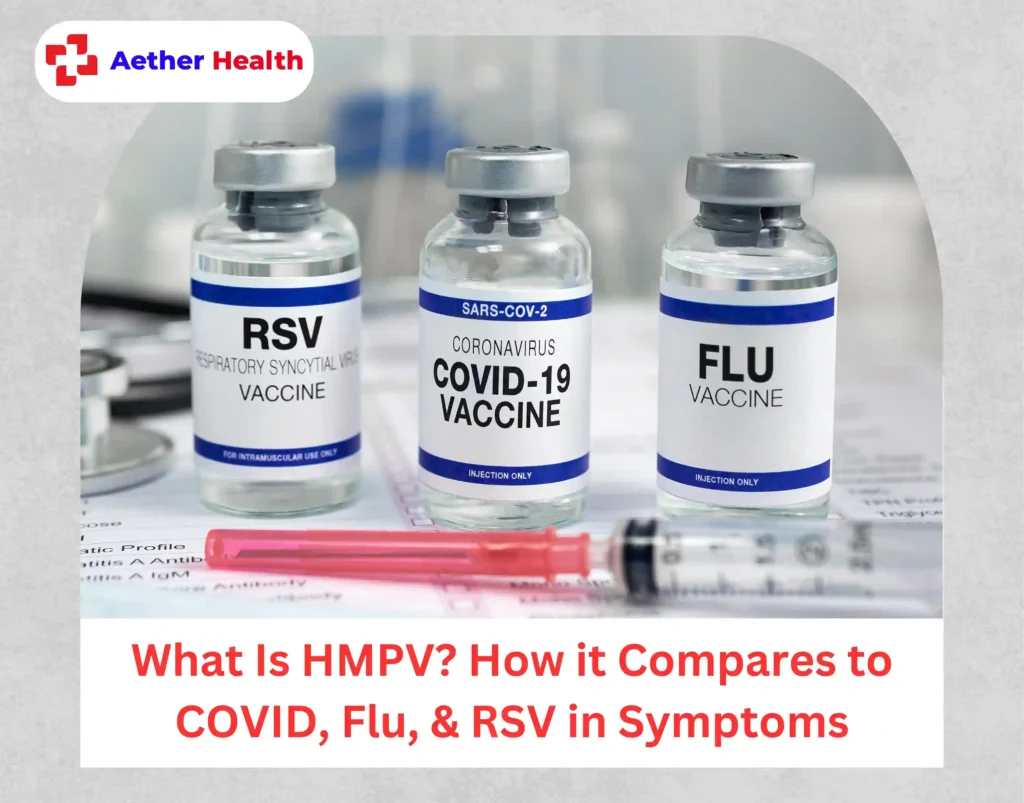The Texas Department of State Health Services has reported multiple measles cases across several counties. This highly contagious viral infection can spread rapidly through unvaccinated populations, particularly in young children and those with weak immunity.
If you notice symptoms like high fever, rash, cough, or red eyes, visit the emergency room immediately for evaluation. Early detection and proper medical care are crucial to prevent complications and limit the spread of measles.
Let’s explore the symptoms, causes, and transmission of measles and how you can protect yourself and your family during this measles outbreak.
Latest Updates on the Texas Measles Outbreak
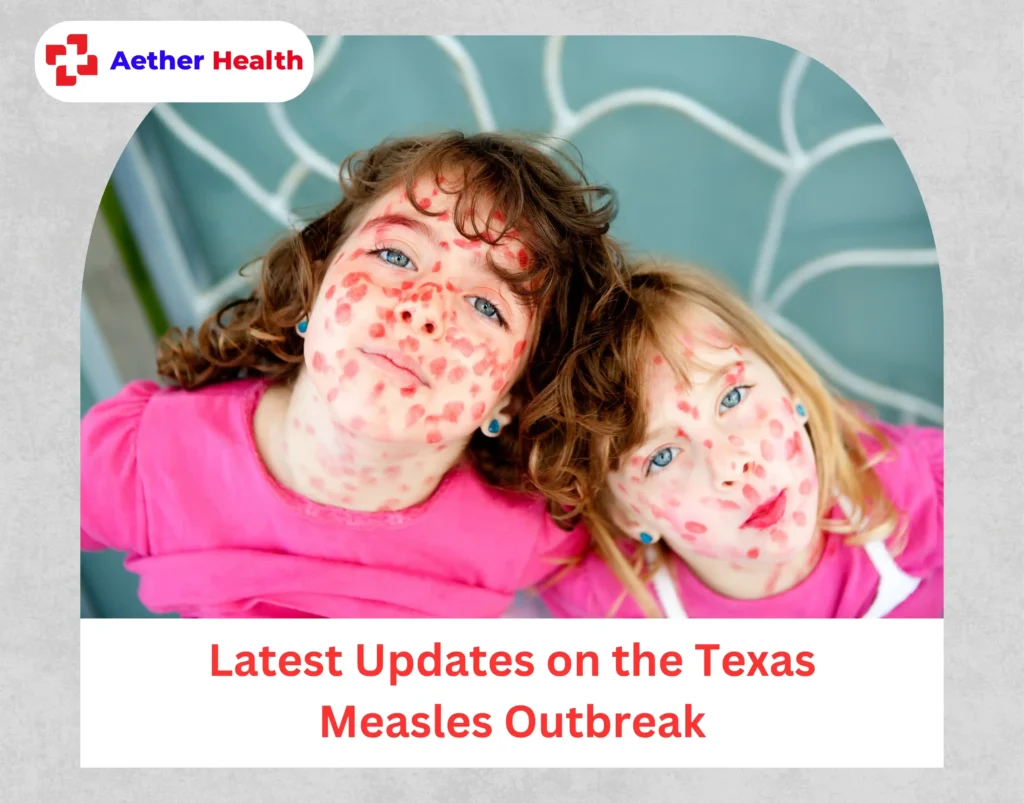
Health officials have confirmed 58 cases of measles across Texas¹, affecting children and unvaccinated individuals the most. The outbreak has been linked to international travel and declining vaccination rates.
Key Outbreak Highlights:
- Confirmed Cases: Reports indicate an increase in cases in various counties, including Gaines County and the surrounding communities.
- High-Risk Populations: Unvaccinated children, infants too young for vaccination, and individuals with weakened immune systems are most vulnerable.
- Public Health Response: Texas health officials urge vaccination efforts and immediate medical attention for suspected cases.
What Is Measles?
Measles is a highly contagious viral infection caused by the measles virus. It spreads through respiratory droplets when an infected person coughs or sneezes.
Symptoms of Measles Include:
- High Fever
- Persistent cough
- Clear runny nose
- Red and watery eyes
- Koplik spots (small white lesions found inside the mouth)
- Bright red rash that begins on the face and subsequently spreads across the body
Potential Complications:
While measles is often self-limiting, it can lead to severe complications, especially in young children and immunocompromised individuals. These include:
- Pneumonia (leading cause of measles-related deaths)
- Encephalitis (brain inflammation causing seizures or permanent damage)
- Severe dehydration due to persistent diarrhea
- Ear infections that may lead to hearing loss
Causes of Measles
Measles is caused by the measles virus, a highly infectious pathogen that belongs to the Paramyxovirus family. It mainly spreads via:
- Respiratory Droplets: Breathing in droplets from the coughs, sneezes, or even breathing of an infected individual.
- Direct Contact: Touching surfaces that carry the virus and subsequently touching the face, mouth, or eyes.
- Airborne Transmission: The virus can linger in the air and on surfaces for as long as two hours after an infected person has vacated the vicinity.
Once the virus enters the body, it multiplies in the respiratory tract before spreading to the bloodstream and other organs, leading to the characteristic symptoms of measles.
Transmission and Risk Factors
- Lack of vaccinations: Individuals who are not vaccinated with the MMR (measles-mumps-rubella) vaccine are at a markedly greater risk for infection and its associated complications.
- Overseas Travel: Traveling to regions currently facing active measles outbreaks significantly increases the likelihood of exposure, particularly in areas characterized by low vaccination rates.
- Close Contact with Infected Individuals:Spending time in close quarters with someone diagnosed with measles, especially in crowded or enclosed environments, considerably amplifies the chances of transmission.
- Weakened Immune System: Individuals with compromised immunity, such as those undergoing chemotherapy or with HIV/AIDS, are more susceptible to severe measles infections.
- Healthcare Workers: Medical professionals are at higher risk due to frequent exposure to potentially infected patients, especially in outbreak situations.
- Infants and Young Children: Those under five years old, particularly infants not yet vaccinated, are highly vulnerable to both infection and serious complications.
- Pregnant Women: Measles during pregnancy poses risks such as premature birth, low birth weight, and miscarriage.
Protecting Your Family During the Measles Outbreak
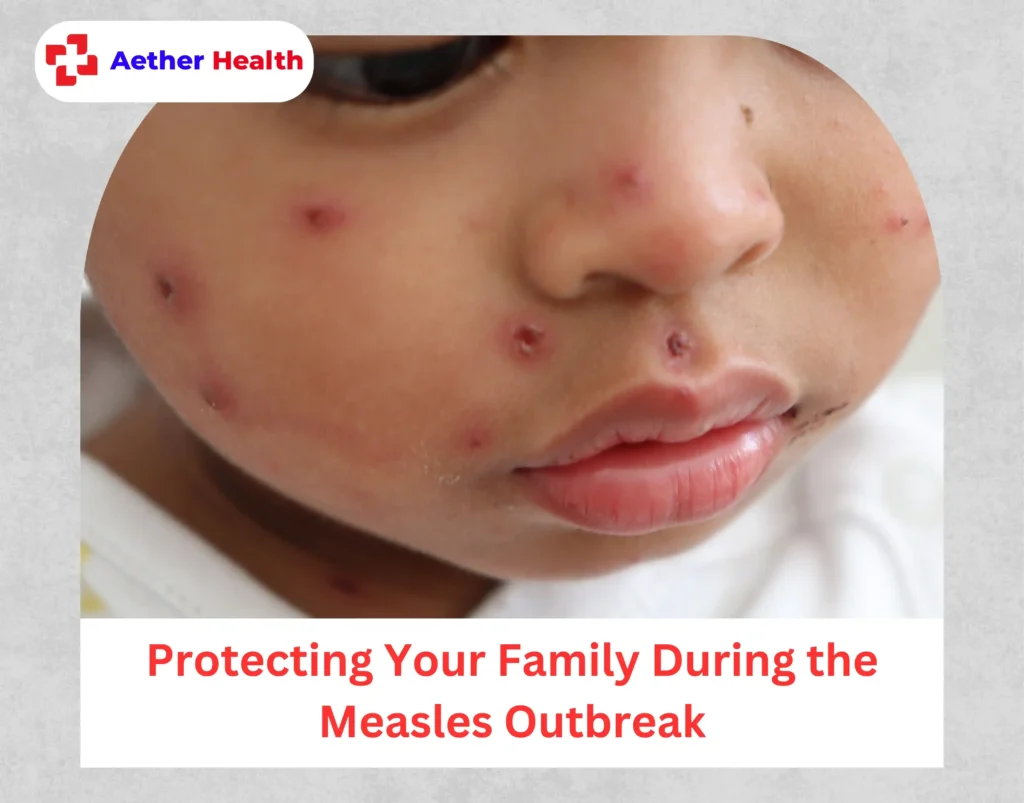
Vaccination: The Strongest Protection for Your Family
The Measles, Mumps, and Rubella (MMR) vaccine is the most reliable safeguard against measles for you and your loved ones. Ensuring your family is up to date with vaccinations is essential, especially during an outbreak. The CDC recommends:
- First dose at 12–15 months – Protects your baby when they are most at risk.
- Second dose at 4–6 years – Strengthens their immunity as they start school and social activities.
If you’re an adult unsure of your vaccination status, consult your healthcare provider. Families with young children, newborns, or immunocompromised members should be particularly vigilant, as they are at higher risk of complications.
Community Immunity: Protecting Your Loved Ones Together
When your family is vaccinated, you’re not just protecting yourselves, you’re helping safeguard your neighbors, friends, and the most vulnerable in your community. Herd immunity occurs when enough people (at least 95%) are vaccinated, making it harder for the virus to spread.
Unfortunately, declining vaccination rates in Texas have put families at greater risk.
By vaccinating your children and encouraging others in your community to do the same, you’re building a stronger defense for everyone, especially infants, pregnant women, and individuals with weakened immune systems who can’t be vaccinated.
Travel Precautions: Keeping Your Family Safe on the Go
Whether traveling for business, leisure, or visiting family, it is crucial to implement additional safety measures to safeguard your family against potential measles exposure:
- Ensure vaccinations are up to date prior to any international travel as numerous countries are currently experiencing outbreaks of measles.
- Avoid interactions with unwell individuals in densely populated locations such as airports, buses, or popular tourist sites.
- Carry hand sanitizers and disinfectant wipes to regularly clean surfaces that are frequently touched.
- Encourage children to wear masks in crowded locations if they are too young for vaccination or considered at increased risk.
By preparing in advance and remaining vigilant, you can help ensure your family’s safety in any location.
Early Diagnosis and Isolation: Acting Fast to Protect Your Family
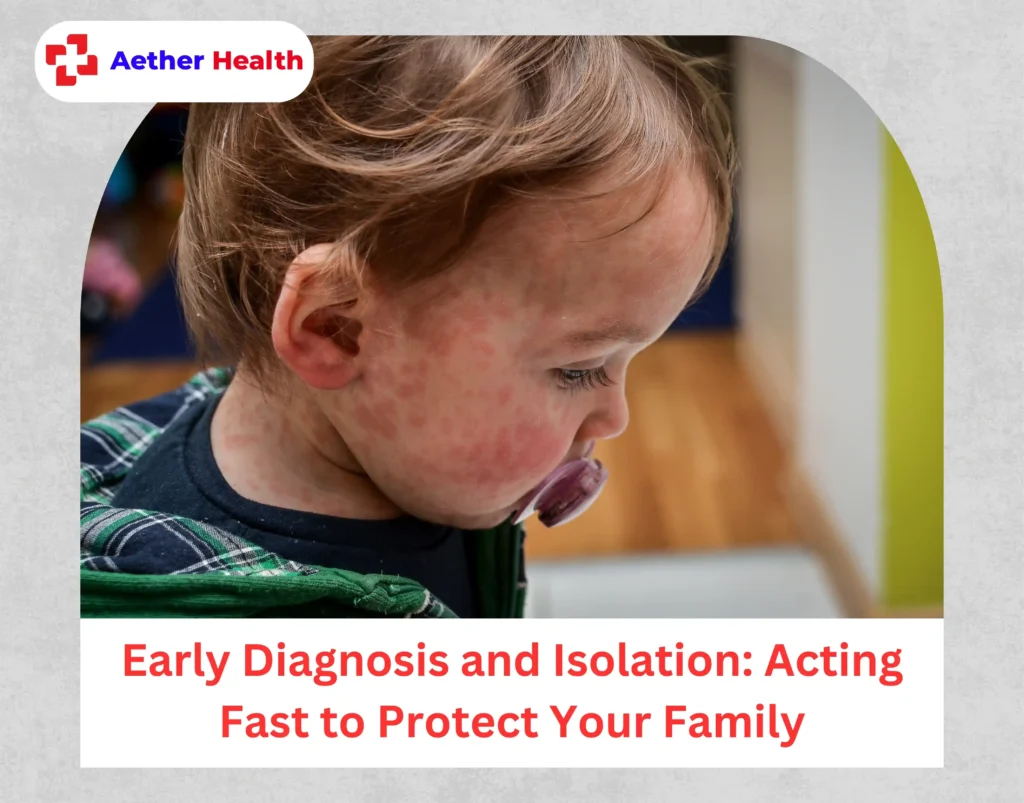
If you suspect a family member has been exposed to measles or shows symptoms like fever, cough, or rash:
- Contact your doctor immediately, but call ahead so they can prepare to prevent exposure to others.
- Keep the sick family member isolated at home for at least four days after the rash appears to avoid spreading the virus to siblings, classmates, or neighbors.
- Monitor symptoms closely, especially in young children, and seek emergency care if complications arise.
- Stay updated with local health advisories to be aware of outbreak areas and recommended precautions for families.
Quick action not only protects your household but also helps contain the outbreak in your community.
Key Takeaway
The recent rise of measles cases in Texas serves as a reminder of how important it is to stay on top of vaccinations, catch symptoms early, and follow public health guidelines. The MMR vaccine remains our best defense against further outbreaks, ensuring that both you and your community are protected.
If you or your loved ones show any symptoms or have been exposed to measles, seek medical help right away. In case of complications, the Aether Health emergency rooms are available around the clock to provide the care needed to manage the situation quickly.
Explore Our Emergency Room Locations
FAQs
Where is the outbreak of measles?
The current measles outbreak is primarily affecting the South Plains region of Texas, with Gaines County reporting the highest number of cases
How long does it take to recover from measles?
Recovery from measles typically takes about 7-10 days after symptoms appear, though the rash itself may last around 5-6 days.
Can I go to work if my child has measles?
If your child has measles, it’s best to stay home and avoid going to work to prevent spreading the virus to others.
